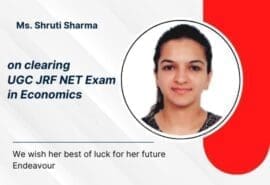
Can I do PhD without CSIR NET
Can I do PhD without CSIR NET
The Council of Scientific and Industrial Research National Eligibility Test (CSIR NET) is a national exam conducted twice yearly to determine eligibility for lectureship and Junior Research Fellowship (JRF) in Indian universities and research institutes.
It was an essential requirement to clear CSIR NET for admission into a PhD program in Science subjects in India. However, the rules have been relaxed over the past few years.
Now, many universities and institutes offer PhD admission even to candidates who still need to qualify CSIR NET. In this article, we will look at the PhD admission criteria of some significant institutes and universities in India and analyze if it is possible to get PhD admission without clearing the CSIR NET exam.
PhD Admission Criteria of IITs, IISc, NITs and Other Centrally Funded Technical Institutions
The centrally funded technical institutions like IITs, IISc, NITs, IIEST and other CFTIs have particular admission criteria for PhD programs. They offer direct admission for candidates having a valid CSIR / UGC NET JRF or those who have cleared national level exams like GATE/JEST/NET/INSPIRE with very high scores.
These institutes conduct written tests and interviews for candidates with these achievements to screen eligible candidates. So in CFTIs, getting PhD admission with CSIR NET certificate is difficult but only possible.
Exceptionally bright candidates can clear the internal tests and interviews conducted by these institutes instead.
Contact us at Mantram Study Group, SCO No. 80-81, First Floor, Sector 15-D and also in Sector 34, Chandigarh (Near Gate No. 2, Panjab University Chandigarh – Contact – 9779797575/ 9463049859)
State and Deemed Universities’ Admission Criteria
The state and deemed universities have relatively relaxed PhD admission norms compared to centrally funded technical institutions. Most of these universities mention CSIR / UGC Best Coaching Institute For Ugc Net Management
NET qualification as only a desirable criterion, not a mandatory one for PhD admission eligibility.
They have their own entrance exams and criteria for short listing candidates for PhD interviews. Many state and deemed universities also allow direct admission of NET-qualified candidates into PhD programs. But at the same time, they also admit fresh postgraduates based on merit, recommendations and performance in internal tests/interviews.
Hence, candidates in state and deemed universities can quickly secure PhD admission without clearing any national exam like CSIR NET.
University Grants Commission (Minimum Standards and Procedure for Award of M.Phil / PhD Degree) Regulations
As per the revised UGC Regulations 2016, clearing any national exam like NET/SLET/SET is not an essential requirement for PhD enrollment. The UGC guidelines give individual institutions and universities autonomy to set their own admission criteria.
The universities should shortlist PhD admission candidates based on specific criteria that test research aptitude, subject competence and ability.
Many universities use CSIR NET and GATE qualification as such screening tools while others rely on internal tests and interviews.
As per UGC rules, both categories of institutions are justified in offering PhD admission, hence getting into a PhD program without CSIR NET certificate is undoubtedly possible.
Importance of a Good Academic Profile
Though CSIR NET qualification is optional at many places, the other eligibility criteria for PhD admission can be pretty stringent. Most universities expect an excellent academic record in post graduation - first class marks or a high CGPA score.
Strong recommendations from previous teachers or mentors also influence the decision making. The candidates must perform very well in the internal screening tests and interviews to demonstrate their motivation and competence for research.
Hence, while CSIR NET score is not essential, an outstanding profile in other aspects is undoubtedly required to improve one’s chances of PhD admission without clearing any national exam.
Best UGC NET Commerce Coaching in India
Scholarship Opportunities may be Limited
While PhD admission without NET is possible, lack of any national level certificate can limit one’s chances of getting a good scholarship at enrollment.
CSIR and UGC offer very attractive JRF and SRF schemes for NET qualified candidates admitted into PhD programs. Other funding organizations like ICMR, DST also have scholarship tests.
So, candidates without such achievements may struggle to obtain a handsome fellowship to support themselves financially during the 5+ years of doctoral research. Many end up joining as self-financed PhD scholars.
Hence, one must be prepared for this eventuality before taking up PhD without clearing exams like CSIR NET.
Conclusion
Getting a PhD seat without qualifying CSIR NET is possible. Still, it requires an outstanding academic record or research potential to get admission and avail scholarship opportunities during the research tenure.
The admission criteria without CSIR NET qualification tends to be flexible in state/deemed universities but relatively rigid for prestigious institutes like IITs, IISc, NITs etc.
With the right approach and perseverance, it is undoubtedly possible for bright, motivated candidates to secure PhD admission even without a CSIR NET certificate.
But they must be ready to face limited funding options compared to JRF qualified scholars in such a situation.
Thanks for visiting our website Mantram Study Group
CHECK OUR OTHER LINKS: -
Testimonials
 Their passion for teaching and extensive knowledge of the subject matter shines through in their engaging lectures and interactive class sessions. Students can grasp complex concepts and excel in their exams with their guidance. The CSIR Life Science Coaching Academy's commitment to students' success is evident in its teaching methodology.
Their passion for teaching and extensive knowledge of the subject matter shines through in their engaging lectures and interactive class sessions. Students can grasp complex concepts and excel in their exams with their guidance. The CSIR Life Science Coaching Academy's commitment to students' success is evident in its teaching methodology.













































